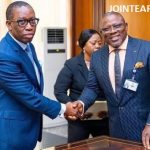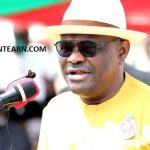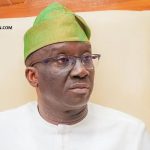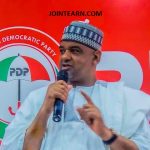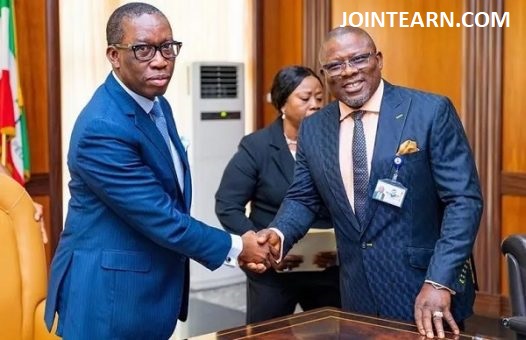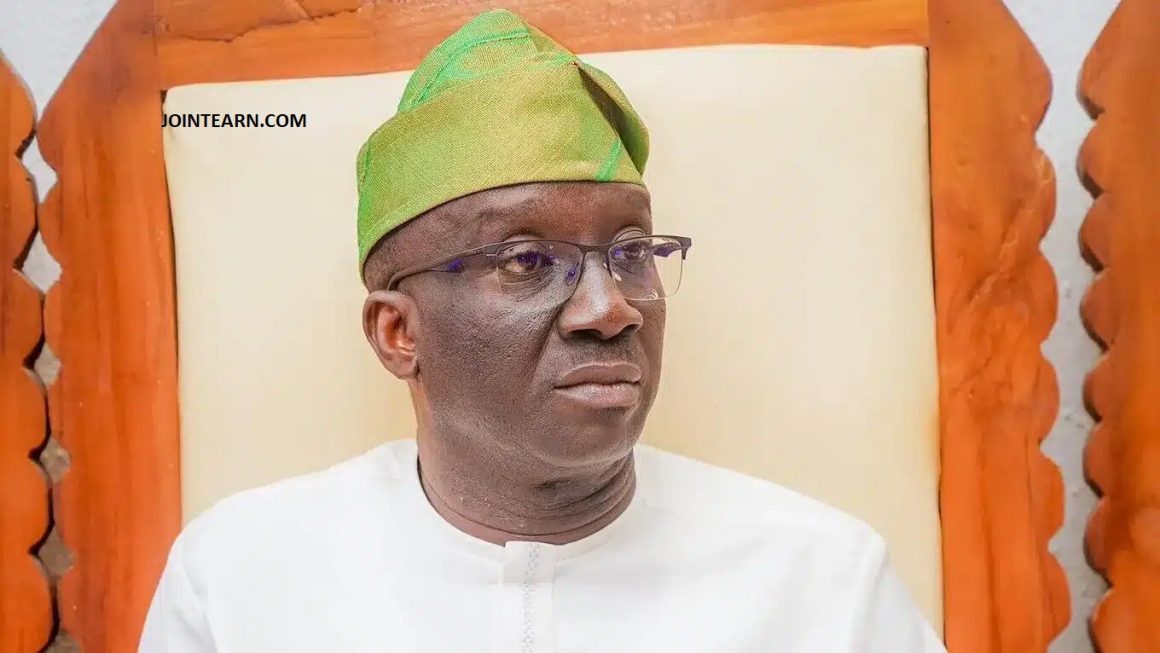Prominent political analyst and public affairs commentator, Dr. Osadolor Igbinedion, has raised serious allegations against the ruling All Progressives Congress (APC), accusing the party of using federal anti-corruption agencies—the Economic and Financial Crimes Commission (EFCC) and the Independent Corrupt Practices and Other Related Offences Commission (ICPC)—as tools of political intimidation to force defections from opposition parties.
Dr. Osadolor’s remarks came in reaction to the recent wave of defections by high-profile politicians, including Delta State Governor Sheriff Oborevwori and former Governor Ifeanyi Okowa, both formerly stalwarts of the People’s Democratic Party (PDP), who were reported to be reconsidering their political alignments amid increasing pressure from federal agencies.
Speaking during an interactive session with journalists in Abuja, Osadolor alleged that the sudden interest of the EFCC and ICPC in investigating past financial records of opposition politicians appears less about fighting corruption and more about coercing loyalty to the APC. According to him, this trend poses a grave threat to Nigeria’s democratic development and undermines the principles of justice and political plurality.
“It is a disturbing pattern,” Osadolor stated. “We are witnessing a systematic weaponization of federal institutions to hound political opponents. This is not governance; it is intimidation by proxy.”
A Surge in Strategic Defections
In the last few months, there has been a noticeable uptick in defections, particularly among politicians who previously held positions under the PDP-led state administrations. While some of the defectors have cited the need for alignment with the federal government to foster development in their states, Osadolor believes the motivation runs deeper.
“We must ask ourselves—why are most of the politicians being hounded all from the opposition?” he questioned. “If the EFCC and ICPC were acting without political interference, we should have seen a balanced approach. Instead, what we see is selective prosecution and calculated public shaming to force allegiance to the ruling party.”
Pressure on Delta Political Class
The case of Delta State has become a focal point in the unfolding drama. Governor Oborevwori, who succeeded Okowa under the PDP ticket, has reportedly faced mounting scrutiny from anti-corruption bodies since assuming office. Although no official charges have been announced, reports suggest that members of his cabinet have been questioned over various state financial dealings.
Former Governor Okowa, who served as Vice Presidential candidate in the 2023 elections, has also come under the radar of investigative bodies, a development Osadolor described as “predictable and targeted.”
According to him, Okowa’s open opposition to the APC during the last elections and his central role in the PDP campaign machinery made him a likely target once the APC retained control of the federal government.
“Okowa is being punished for being on the wrong side of the political divide,” Osadolor insisted. “It’s not about accountability; it’s about control and punishment.”
EFCC and ICPC React
Although the EFCC and ICPC have maintained silence on the specific allegations raised by Osadolor, both agencies have repeatedly emphasized their independence and impartiality in the discharge of their duties. In previous statements, the EFCC has affirmed that it investigates financial crimes based on evidence and whistleblower tips, and not on political instructions.
Nonetheless, observers have expressed concerns about the timing and pattern of investigations. Many civil society organizations have called for clearer oversight mechanisms to ensure that anti-corruption institutions are not used as tools for political vendettas.
Democracy at a Crossroads
Osadolor warned that the growing politicization of independent institutions could have long-term consequences on Nigeria’s democratic progress.
“When people are made to choose between their freedom and their political beliefs, democracy suffers,” he lamented. “We are creating a dangerous precedent where loyalty to the ruling party becomes a prerequisite for safety.”
He urged the National Assembly, civil society organizations, and the international community to closely monitor the developments, adding that the independence of institutions like the EFCC and ICPC is fundamental to the integrity of Nigeria’s political system.
“Today, it is opposition politicians. Tomorrow, it could be dissenting voices within the APC. Once these agencies are politicized, no one is safe.”
A Call for Transparency
While reaffirming his support for the fight against corruption, Osadolor stressed the importance of transparency and fairness in the process. He called for the establishment of a bipartisan committee to review the operational procedures of the EFCC and ICPC to ensure they remain insulated from political manipulation.
“We must not allow the noble cause of fighting corruption to be hijacked for political gains,” he said. “Nigerians deserve to see justice served without prejudice or favoritism.”
He further appealed to politicians to remain firm in their convictions and resist what he described as “bully tactics disguised as investigations.”
Political Fallout and Implications
With the 2027 elections looming on the horizon, political observers believe that the ongoing pressure on opposition figures could significantly reshape the political landscape, especially in strategic states like Delta. If the current pattern continues, it could embolden the ruling party while weakening institutional resistance—an outcome that some fear may return the country to a one-party dominant system.
In conclusion, Osadolor emphasized the need for vigilance, courage, and a renewed commitment to democratic ideals. “This is not just about political parties,” he said. “It’s about the soul of our democracy. If we remain silent now, we may wake up one day to find we no longer have a choice.”
